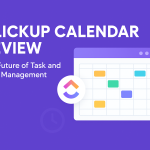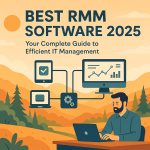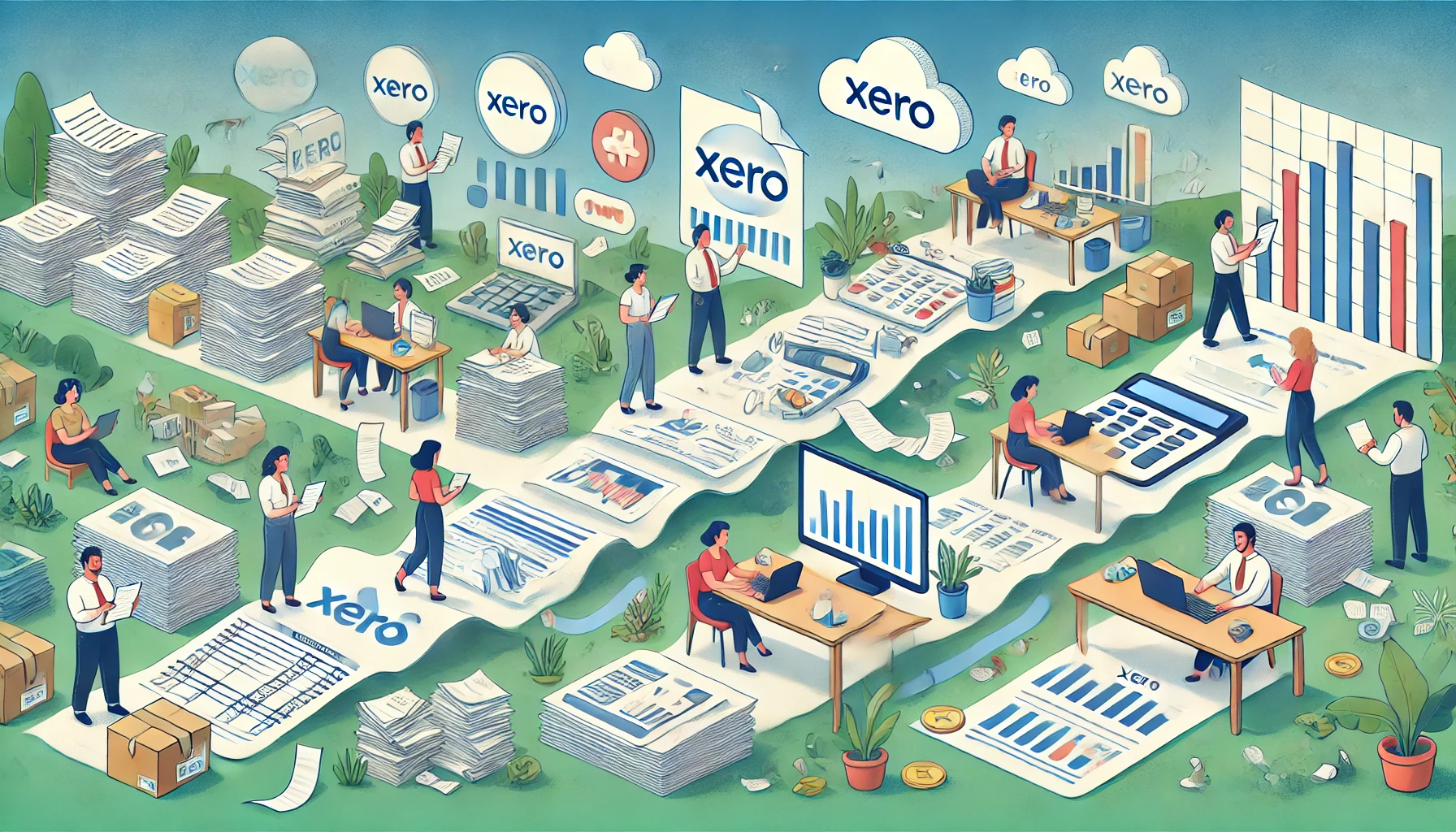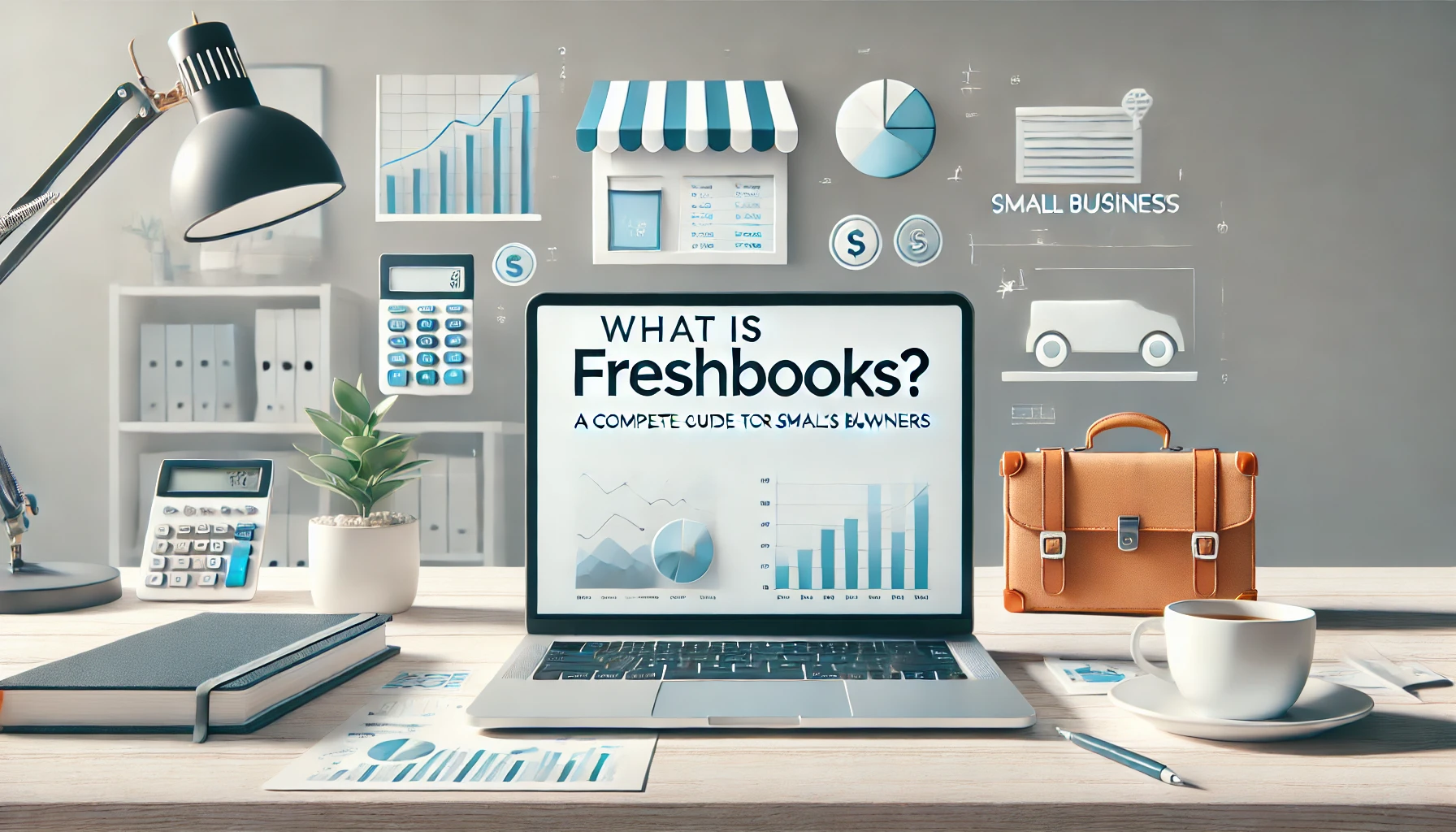Why Cloud-Based Accounting Software Is a Game-Changer for Small Businesses
Managing finances efficiently is crucial for small businesses, and modern tools are revolutionizing the way this is done. With solutions like QuickBooks Online, you can access financial data from anywhere, run reports, and sync bank transactions seamlessly. This flexibility is essential for today’s fast-paced business environment.
These tools also automate repetitive tasks, saving you time and reducing errors. For example, invoicing and tax calculations are streamlined, allowing you to focus on growing your business. Additionally, real-time dashboards provide instant insights into cash flow and profit margins, helping you make informed decisions quickly1.
Scalability is another key benefit. As your business grows, these solutions adapt to your needs, offering features like multi-currency support and customizable reporting. This ensures you’re always equipped to handle complex financial demands2.
Key Takeaways
- Access financial data from any device with an internet connection.
- Automate tasks like invoicing and tax calculations to save time.
- Real-time dashboards provide instant insights into cash flow.
- Scalable solutions grow with your business needs.
- QuickBooks Online is a leading choice for small businesses.
Introduction to Cloud-Based Accounting Software
Modern financial tools are reshaping how small businesses handle their finances. These solutions offer flexibility, scalability, and real-time insights, making them essential for growth. One such innovation is cloud accounting, which eliminates the need for desktop installations and provides access from anywhere3.
Defining Cloud Accounting
Cloud accounting refers to financial management tools hosted online. Instead of installing software on your computer, you access it through a web browser or app. This approach simplifies tasks like invoicing, bank reconciliations, and reporting3.
With cloud accounting, your data is stored securely on remote servers. This ensures you can access it anytime, from any device with an internet connection. It also reduces the need for manual updates, as providers handle backups and maintenance automatically4.
Why It Matters for Small Businesses
For small businesses, cloud accounting offers significant advantages. It provides real-time data access, allowing you to make informed decisions quickly. Collaboration is also easier, as multiple users can work on the same data simultaneously3.
Scalability is another key benefit. As your business grows, cloud solutions like Zoho Books adapt to your needs. They support multi-currency transactions and customizable reporting, ensuring you’re always prepared for complex financial demands4.
Cost-effectiveness is a major draw. Unlike traditional software, cloud accounting operates on a subscription model. This eliminates upfront costs and reduces the need for dedicated IT staff3.
| Feature | Cloud Accounting | Traditional Software |
|---|---|---|
| Accessibility | Any device with internet | Single computer |
| Updates | Automatic | Manual |
| Cost | Subscription-based | Upfront purchase |
Cloud accounting is not just a trend; it’s a necessity for modern small businesses. It combines flexibility, security, and efficiency, making it a game-changer in financial management4.
Key Benefits and Advantages for Small Businesses
Accessible and scalable solutions are transforming small business operations. With the rise of mobile apps and flexible tools, managing your finances has never been easier. These innovations empower you to stay productive, no matter where you are.
Remote Access and Flexibility
One of the standout features of modern tools is remote access. You can manage your accounts from anywhere using a mobile app or web browser. This flexibility ensures you’re always in control, even when you’re on the go5.
Collaboration is also seamless. Multiple users can access financial data simultaneously, making teamwork more efficient. This is especially useful for businesses with remote teams or external advisors5.
Cost-Effective Scalability
Scalability is another major advantage. As your business grows, these tools adapt to your needs. You can start with basic features and upgrade as required, without incurring large upfront costs6.
Flexible subscription plans make it easy to manage cash flow. You only pay for what you need, ensuring your expenses align with your business size6.
Even software small business solutions offer robust features with minimal setup. This makes them ideal for startups and growing companies alike.
In conclusion, these benefits—remote access, collaboration, and scalability—enhance overall business efficiency. By leveraging these tools, you can focus on what matters most: growing your business.
How Cloud Accounting Streamlines Financial Management
Streamlining financial management has never been easier with modern tools that automate and simplify processes. These solutions reduce manual effort, minimize errors, and provide actionable insights to help you stay on top of your finances.
Automated Reporting and Data Entry
One of the most significant advantages is the automation of repetitive tasks. Tools like QuickBooks Online automatically sync bank transactions, track expenses, and generate reports. This eliminates the need for manual data entry, saving time and reducing errors7.
Multi-user access allows your team to collaborate in real-time, improving accuracy and efficiency. This is especially useful for businesses with remote teams or external advisors7.
Real-Time Financial Insights
Access to real-time data is a game-changer. You can monitor cash flow, expenses, and revenue instantly, enabling quick decision-making. This is crucial for startups and small businesses that need to react swiftly to financial changes8.
Integration with other apps enhances functionality. For example, connecting your financial tool with CRM or inventory management systems streamlines operations and reduces administrative workload8.
- Automate tasks like invoicing and bank reconciliations to save time.
- Real-time dashboards provide instant insights into financial health.
- Integration with other tools enhances overall efficiency.
- Reduce manual errors with automated data entry and reporting.
Overview of Top Cloud-Based Accounting Software
Choosing the right financial tools can make or break your business operations. With so many options available, it’s essential to understand the features and benefits of leading solutions. This section provides a roundup of top-rated tools designed to streamline your financial management.
These tools offer flexible pricing plans, often billed per month, making them accessible for businesses of all sizes. Whether you’re a startup or an established company, you’ll find a solution that fits your budget and needs9.
Each product leverages cloud technology to provide real-time access to your financial data. This ensures you can manage your accounts from anywhere, at any time. Additionally, these tools integrate seamlessly with other apps, enhancing their functionality10.
Here’s a quick comparison of some standout options:
| Tool | Starting Price | Key Feature |
|---|---|---|
| QuickBooks Online | $35/month | 750+ app integrations |
| Xero | $20/month | Unlimited users |
| Zoho Books | $0/month | Free plan for small businesses |
| FreshBooks | $21/month | Unlimited time tracking |
| Wave | $0/month | Free invoicing |
| Odoo | $0/month | Customizable modules |
In the following sections, we’ll dive deeper into each tool’s feature sets, integration capabilities, and support options. This will help you make an informed decision for your business needs11.
QuickBooks Online: Industry Leader in Cloud Accounting
QuickBooks Online has established itself as a top choice for small businesses seeking efficient financial management. With over 624,000 subscribers globally, it’s no surprise that this tool leads the pack in online financial solutions12. Its robust features and seamless integrations make it a standout option for businesses of all sizes.
Robust Feature Set and Integrations
One of the key reasons QuickBooks Online is so popular is its extensive feature set. From invoicing to expense tracking, it simplifies complex tasks. You can create professional invoices in minutes, ensuring timely payments and better cash flow management13.
The tool also integrates with over 750 third-party apps, making it a central hub for your business operations. Whether you need to manage inventory, schedule appointments, or process payments, QuickBooks Online has you covered9.
Pricing Tiers and User Support
QuickBooks Online offers flexible pricing plans to suit different business needs. Starting at $35 per month, the Simple Start plan includes essential features like invoicing and expense tracking. For more advanced needs, the Plus plan at $99 per month adds features like project profitability and inventory management9.
Each plan includes automatic upgrades, ensuring you always have access to the latest features. Additionally, QuickBooks Online provides excellent customer support, including expert resources and a detailed activity log for enhanced security12.
“QuickBooks Online’s ability to integrate with so many apps makes it a game-changer for small businesses.”
With its powerful invoicing capabilities, precise tracking, and scalable plans, QuickBooks Online is a reliable partner for your financial management needs. Whether you’re a startup or an established business, it adapts to your growth and simplifies your operations.
Xero: Elevating Business Performance Tracking
Xero stands out as a powerful tool for businesses aiming to enhance their financial performance tracking. With over 3 million users globally, it’s trusted for its robust features and seamless integrations14. Whether you’re a small startup or a growing enterprise, Xero adapts to your needs, making it a top choice for modern businesses.
Unlimited Users and Customizable Dashboard
One of Xero’s standout features is its support for unlimited users. This makes it ideal for collaborative work, allowing your team, accountants, and advisors to access data simultaneously14. The customizable dashboard lets you rearrange panels to focus on key metrics, ensuring you always have the most relevant insights at your fingertips.
With its intuitive website, accessing and managing your financial data is straightforward. You can easily track cash flow, expenses, and revenue in real-time, enabling faster decision-making14.
Third-Party App Integrations
Xero integrates with over 800 third-party apps, enhancing its functionality for businesses14. Whether you need inventory management, CRM, or project tracking, these integrations streamline your operations. For example, connecting Xero with inventory apps ensures real-time tracking of stock and costs15.
This flexibility makes Xero a versatile accounting solution for various industries. From retail to services, it adapts to your unique needs, providing a tailored user experience16.
“Xero’s unlimited user capability and seamless integrations make it a game-changer for collaborative financial management.”
In summary, Xero’s unlimited users, customizable dashboard, and extensive integrations make it a reliable partner for businesses. Its intuitive website and robust features ensure you can focus on growing your business while staying in control of your finances.
Zoho Books: Scalability for Growing Businesses
For businesses aiming to scale efficiently, Zoho Books offers a robust solution tailored to growth. Its affordable plans and powerful features make it a top choice for companies looking to streamline operations while preparing for future expansion17.
Affordable Plans with Multilingual Capabilities
Zoho Books provides cost-effective subscription plans that grow with your business. Starting with a free plan for small businesses, it scales to accommodate more transactions and users as your needs evolve17. This flexibility ensures you only pay for what you use, making it a budget-friendly option.
Multilingual support is another standout feature. With capabilities in multiple languages and real-time multi-currency updates, Zoho Books is ideal for businesses operating globally17. This ensures seamless communication and accurate financial tracking across borders.
Workflow Automation and Comprehensive Reporting
Automation is at the heart of Zoho Books. It simplifies repetitive tasks like invoicing, payment reminders, and expense tracking, saving you valuable time and reducing errors17. For example, recurring invoices and payment reminders are automated, ensuring timely collections and improved cash flow.
Integration with other tools enhances its functionality. Zoho Books connects seamlessly with Zoho CRM, Zoho Inventory, and over 800 third-party apps, streamlining data flow across your business18. This integration capability ensures all your systems work together efficiently.
Comprehensive reporting features provide deep insights into your business performance. From profit & loss statements to cash flow reports, Zoho Books equips you with the data needed to make informed decisions17.
| Feature | Benefit |
|---|---|
| Multilingual Support | Global business compatibility |
| Workflow Automation | Reduces manual tasks and errors |
| Integration Capabilities | Streamlines data flow across tools |
| Comprehensive Reporting | Provides actionable insights |
In summary, Zoho Books combines affordability, automation, and global support to help businesses scale efficiently. Its robust features and seamless integration make it a reliable partner for managing finances and driving growth.
FreshBooks: The Go-To for Freelancers and Service-Based Businesses
Freelancers and service-based professionals need tools that simplify financial tasks while on the move. FreshBooks is designed to meet these needs, offering intuitive features that streamline invoicing, time tracking, and expense management. With over 10 million users across 120 countries, it’s a trusted solution for self-employed professionals19.
Intuitive Mobile App Features
FreshBooks’ mobile app empowers freelancers to manage their finances from anywhere. Whether you’re on a job site or traveling, the app ensures your financial data is always at your fingertips. You can create professional invoices, track expenses, and monitor cash flow with just a few taps20.
The app also integrates with other tools, enhancing its functionality. For example, you can connect it with Gusto for payroll processing, making it easier to manage your business operations20.
Time Tracking and Invoicing Efficiency
Time tracking is a standout feature of FreshBooks. It allows you to log hours worked for specific clients, ensuring accurate billing. This is especially useful for service-based professionals who charge by the hour20.
Invoicing is equally efficient. You can send professional-looking invoices in seconds, and automated late payment reminders help you get paid faster. FreshBooks users report getting paid 11 days faster through its online payment solutions19.
Here’s a quick overview of FreshBooks’ pricing tiers:
| Plan | Price | Key Features |
|---|---|---|
| Lite | $15/month | Up to 5 clients, invoicing, expense tracking |
| Plus | $25/month | Up to 50 clients, time tracking, proposals |
| Premium | $50/month | Unlimited clients, advanced reporting |
FreshBooks’ user-friendly interface and robust features make it the go-to tool for freelancers. Its ability to simplify financial management and maintain accurate account data ensures you can focus on growing your business21.
Wave Accounting: Best Free Cloud Accounting Solution
For small businesses on a tight budget, finding a reliable financial tool that doesn’t break the bank is essential. Wave Accounting stands out as a top choice, offering a free plan that covers all the basics without compromising on quality. With over 2 million small business owners trusting Wave, it’s clear this tool delivers value22.
User-Friendly Interface with No Monetary Entry Barrier
Wave’s interface is designed to be intuitive, making it easy for users to navigate even without prior experience. You can start managing your finances immediately, with no upfront costs. This makes it ideal for sole proprietors and startups looking to keep expenses low23.
The free plan includes essential features like invoicing and expense tracking. You can create professional invoices, track income and expenses, and generate financial reports effortlessly. Wave’s double-entry system ensures accuracy, which is trusted by accountants22.
Optional Paid Upgrades for Added Functionality
While the free plan covers the basics, Wave offers optional upgrades for those needing more advanced tools. The Pro plan, priced at $16 per month, includes features like recurring invoicing and automatic credit card billing23. These upgrades are perfect for growing businesses that require additional capabilities.
Wave also provides payroll services and mobile receipt functionality for an extra fee. These add-ons enhance the overall service, making it a versatile solution for various business needs24.
Straightforward Inventory Management
Even with its free plan, Wave includes tools for basic inventory management. This ensures you can keep track of your stock without needing a separate system. While it may not offer advanced inventory features, it’s sufficient for small businesses with simpler needs23.
Wave’s servers are protected by 256-bit SSL encryption, ensuring your data is secure. This level of security is crucial for businesses handling sensitive financial information22.
In summary, Wave Accounting combines affordability, ease of use, and essential features to support small businesses. Its free plan is a game-changer for startups, while its optional upgrades provide flexibility for growth. Whether you’re a sole proprietor or a growing business, Wave offers a reliable solution to manage your finances effectively.
Odoo: Open-Source Flexibility in Cloud Accounting
For businesses seeking a flexible and customizable financial solution, Odoo stands out as a powerful open-source platform. Its modular design allows you to tailor the system to your specific needs, making it ideal for companies of all sizes25.
Customizable Modules for Tailored Workflows
Odoo’s open-source model lets you choose which product features to integrate. Whether you need invoicing, inventory management, or CRM, you can select only the modules that fit your business26. This flexibility ensures you’re not paying for unnecessary features.
You can also configure the system to track expenses efficiently. For example, automate expense approvals or set custom rules for reimbursements. This level of customization streamlines your financial workflows27.
Community Support and Cost Efficiency
Odoo’s active community is a valuable resource for troubleshooting and learning. With thousands of users contributing to forums and documentation, you’ll find solutions to common challenges quickly25.
Cost efficiency is another advantage. Odoo offers a free accounting app for single-module use, with paid upgrades unlocking a full suite of integrated applications. This makes it an affordable choice for startups and small businesses26.
“Odoo’s modular design and community support make it a game-changer for businesses seeking customizable financial solutions.”
With its easy access to extensive functionalities and scalable features, Odoo grows with your business. Whether you’re a startup or an established company, it provides the tools you need to manage finances effectively27.
Exploring Additional Cloud Accounting Tools & Integrations
Enhancing your financial operations with the right tools can significantly boost efficiency and accuracy. Beyond core solutions, auxiliary apps and integrations can streamline processes like expense tracking, invoicing, and customer management. These tools work seamlessly with your primary system, adding layers of functionality to your workflow28.
Expense Management and Receipt Scanning Apps
Expense management apps like Dext and Hubdoc automate data capture, reducing manual entry errors. These tools allow you to scan receipts, categorize expenses, and sync data directly with your financial system. This ensures accurate reporting and saves valuable time29.
With real-time updates, you can track expenses as they occur, providing a clear view of your financial health. This level of automation is especially useful for businesses with high transaction volumes28.
Invoicing, Billing, and Proposal Solutions
Invoicing tools like Entryless simplify billing processes by generating professional invoices and tracking payments. These apps integrate with your financial system, ensuring all transactions are recorded accurately30.
Proposal solutions also help you create detailed quotes and contracts, improving client communication. This integration ensures a smooth workflow from proposal to payment28.
Job, CRM, and Inventory Management Integrations
Integrating job tracking and CRM tools with your financial system enhances customer management. You can monitor project progress, track client interactions, and manage leads all in one place29.
Inventory management integrations ensure accurate stock tracking and cost analysis. This is crucial for businesses that rely on physical products, as it prevents overstocking or shortages28.
| Tool Type | Key Benefit |
|---|---|
| Expense Management | Automates data capture and reduces errors |
| Invoicing Solutions | Streamlines billing and payment tracking |
| CRM Integrations | Enhances customer and project management |
| Inventory Management | Ensures accurate stock tracking and cost analysis |
These integrations not only improve financial report accuracy but also enhance overall business efficiency. By leveraging these tools, you can focus on growing your business while maintaining control over your finances30.
Evaluating Cloud-Based Accounting Software Options
Selecting the right financial tool can significantly impact your business’s efficiency and growth. With so many options available, it’s essential to match the software’s capabilities with your specific needs. This ensures you get the most value while staying within budget.
Matching Software Capabilities to Business Needs
Start by identifying your business’s core requirements. For example, if you handle international transactions, look for tools with multi-currency support. This feature ensures accurate financial tracking across borders31.
If inventory management is a priority, choose a solution that offers robust tracking and reporting. This helps you avoid overstocking or shortages, which can affect cash flow32.
Consider the familiarity of your team with certain tools. For instance, many accountants are well-versed in QuickBooks, making it a practical choice for seamless collaboration32.
Budget Considerations and Long-Term Value
While upfront costs are important, focus on long-term value. Subscription-based models, like those offered by cloud tools, eliminate hefty initial investments. This makes them ideal for small businesses32.
Evaluate pricing tiers carefully. Some plans start as low as $10 per month, offering essential features for startups. As your business grows, you can upgrade to more advanced plans31.
Automation features, such as invoicing and expense tracking, save time and reduce errors. These efficiencies can lead to significant cost savings over time32.
By aligning software capabilities with your business goals and budget, you can choose a tool that supports growth and simplifies financial management. This approach ensures you get the most out of your investment.
Transitioning from Desktop to Cloud-Based Accounting
Switching from traditional desktop systems to modern solutions can transform how you manage your finances. Many businesses report improved performance and reduced IT costs after making the shift33. However, the transition comes with its own set of challenges and benefits.
One of the main challenges is adapting to a new system. For businesses used to desktop tools, the change can feel overwhelming. However, tools like QuickBooks Online simplify the process with automated migration features. In fact, 89% of small businesses complete the transition in less than a week using these tools33.
One of the biggest advantages is regular updates and remote access. Unlike desktop systems, cloud solutions automatically update, ensuring you always have the latest features. Remote access allows you to manage your finances from anywhere, making it ideal for businesses with multiple locations or remote teams34.
Many providers offer free trial periods, allowing you to test the system before committing. This is especially useful for software small businesses that want to ensure the tool meets their needs. Trials also give you a chance to explore features like automated invoicing, which can save significant time33.
Improved invoicing processes are another major benefit. Cloud systems streamline invoicing, reducing errors and speeding up payments. For example, businesses using QuickBooks Online report a 50% reduction in time spent on invoicing and reconciliation tasks33.
Security is another key advantage. Cloud solutions offer enhanced backup and encryption features, protecting your data from cyber threats. This is crucial, as 60% of small businesses that suffer a cyber attack go out of business within six months33.
To ensure a smooth transition, plan carefully. Start by identifying your business’s specific needs and choose a tool that aligns with them. Train your team to minimize errors and maximize efficiency. With the right approach, moving to a cloud-based system can be a game-changer for your business.
Leveraging Mobile Apps in Cloud Accounting
Mobile apps have become indispensable for businesses looking to manage finances efficiently while on the move. These tools provide flexibility, allowing you to handle tasks like invoicing, expense tracking, and client interactions from anywhere. With real-time access to financial data, you can make faster, more informed decisions35.
User Experience on the Go
Modern mobile apps are designed for speed and responsiveness, ensuring a seamless experience. You can create and send invoices, track expenses, and even execute a sale directly from your phone. This level of convenience is especially useful for businesses with remote teams or frequent travelers36.
Automation features, like recurring invoices and payment reminders, reduce manual work and improve accuracy. For example, apps like QuickBooks Online allow you to manage your finances with just a few taps, saving valuable time35.
Ensuring Security and Continuous Access
Security is a top priority for mobile financial tools. Leading apps use encryption and automatic backups to protect sensitive data. This ensures your financial information is safe, even if your device is lost or stolen35.
Continuous access is another key benefit. With cloud-based solutions, you can access your data anytime, from any device. This is crucial for maintaining productivity and staying on top of your finances37.
- Mobile apps enhance the user experience by providing real-time access to financial data.
- Security measures like encryption ensure your data is protected at all times.
- Automation features streamline tasks like invoicing and expense tracking.
- You can execute a sale or manage client interactions seamlessly via mobile.
- Modern interfaces are fast and responsive, making financial management easier on the go.
By leveraging mobile apps, you can stay connected to your finances and provide better service to your clients. These tools are not just convenient; they’re essential for modern business operations35.
Implementation Tips and Best Practices for Cloud Accounting
Implementing the right financial tools requires careful planning and execution to maximize efficiency. A smooth transition starts with a structured approach, ensuring your team is well-prepared and your workflows are optimized. Here’s how you can set up and use these tools effectively.
Efficient Setup and Training
Begin by conducting a thorough audit of your current system. Companies that do this are 40% more likely to achieve a successful transition38. This step helps identify potential challenges and ensures data accuracy during migration.
Training is equally crucial. Organizations that provide at least two hours of employee training experience 30% fewer errors in financial reporting38. Structured sessions for both accountants and staff ensure everyone is comfortable with the new system.
Leverage support resources like tutorials, webinars, and customer service. These tools simplify the learning curve and help your team adapt quickly. For self-employed professionals, this is especially important as they often manage finances independently.
Collaboration with Accountants and Teams
Clear communication is key during implementation. Engage with key stakeholders early in the process to reduce migration-related disruptions by 50%38. This ensures everyone is aligned and working toward the same goals.
Set measurable objectives for the transition. Businesses that do this report enhanced data accessibility post-migration38. For example, define milestones like completing data migration within a week or achieving full team adoption within a month.
Teamwork is essential. Encourage collaboration between accountants and staff to ensure smooth workflows. This is particularly beneficial for the best small business operations, where resources are often limited.
“A well-planned transition and ongoing training are the cornerstones of successful financial tool implementation.”
- Conduct a system audit to identify challenges and ensure data accuracy.
- Provide structured training to reduce errors and improve efficiency.
- Use support resources to simplify the learning process.
- Engage stakeholders early to minimize disruptions.
- Set clear, measurable goals for the transition.
- Foster teamwork to optimize workflows and collaboration.
By following these best practices, you can ensure a seamless transition and maximize the benefits of your financial tools. Whether you’re a small business or a self-employed professional, these steps will help you stay organized and efficient.
Conclusion
Modern financial solutions are reshaping how businesses handle their day-to-day operations. These tools offer real-time access to data, enabling you to manage finances from anywhere. With features like automated workflows and seamless integrations, they streamline tasks like invoicing and bank reconciliations, saving time and reducing errors39.
Advanced tools also provide enhanced security, including encryption and automatic backups, ensuring your financial data is protected40. This level of reliability supports long-term stability, allowing you to focus on growth rather than administrative tasks.
When choosing a solution, consider your specific needs. Options like QuickBooks and Zoho Books cater to different business sizes and industries. Each offers unique features, from multi-currency support to customizable reporting39.
Take the time to review your current system and explore modern alternatives. Transitioning to these tools can improve efficiency, collaboration, and decision-making. Start your journey today and experience the benefits of streamlined financial management.
FAQ
What is cloud-based accounting software?
Cloud-based accounting software allows you to manage your financial data online, offering remote access and real-time updates. It eliminates the need for physical installations and provides flexibility for small businesses.
Why is cloud accounting important for small businesses?
It offers cost-effective scalability, automated reporting, and real-time insights, making financial management more efficient. You can access your data anytime, anywhere, which is crucial for growing businesses.
What are the key benefits of using cloud accounting software?
Key benefits include remote access, flexibility, automated data entry, and real-time financial insights. These features streamline operations and save time for small business owners.
How does cloud accounting streamline financial management?
It automates repetitive tasks like reporting and data entry, providing accurate and up-to-date financial information. This helps you make informed decisions quickly.
What are some top cloud-based accounting software options?
Popular options include QuickBooks Online, Xero, Zoho Books, FreshBooks, Wave Accounting, and Odoo. Each offers unique features tailored to different business needs.
What makes QuickBooks Online a leader in cloud accounting?
QuickBooks Online offers a robust feature set, seamless integrations, and multiple pricing tiers. It also provides excellent user support, making it a top choice for small businesses.
How does Xero enhance business performance tracking?
Xero offers unlimited users, a customizable dashboard, and extensive third-party app integrations. These features help you track and improve your business performance effectively.
Why is Zoho Books suitable for growing businesses?
Zoho Books provides affordable plans, multilingual capabilities, workflow automation, and comprehensive reporting. These features make it scalable for businesses at any stage.
What makes FreshBooks ideal for freelancers and service-based businesses?
FreshBooks offers an intuitive mobile app, efficient time tracking, and streamlined invoicing. These features are perfect for freelancers and service-based businesses.
Is there a free cloud accounting solution available?
Yes, Wave Accounting offers a user-friendly interface with no monetary entry barrier. It’s a great option for small businesses looking for a free solution.
How does Odoo provide flexibility in cloud accounting?
Odoo offers customizable modules and strong community support, allowing you to tailor the software to your specific business needs.
What additional tools integrate well with cloud accounting software?
Tools for expense management, receipt scanning, invoicing, billing, CRM, and inventory management integrate seamlessly with cloud accounting software, enhancing overall functionality.
How do I choose the right cloud accounting software for my business?
Evaluate your business needs, budget, and long-term goals. Look for software that offers the features and scalability you require.
How can I transition from desktop to cloud-based accounting?
Start by selecting the right software, migrating your data, and training your team. Ensure you have a reliable internet connection and backup plans in place.
What are the advantages of using mobile apps in cloud accounting?
Mobile apps provide user-friendly experiences on the go, ensuring continuous access to your financial data. They also enhance security and convenience.
What are some best practices for implementing cloud accounting software?
Efficient setup, proper training, and collaboration with accountants and teams are crucial. Regularly update your software and review your financial data for accuracy.
Source Links
- How Cloud-Based Accounting Software is Transforming Small Business Finance – https://vocal.media/journal/how-cloud-based-accounting-software-is-transforming-small-business-finance
- Why Cloud Accounting Software is a Game Changer – https://netsuiteeexpert.wordpress.com/2025/01/30/why-cloud-accounting-software-is-a-game-changer/
- What is Cloud Accounting? – https://certinia.com/learn/accounting/what-is-cloud-accounting/
- Introduction To Cloud Accounting – https://www.acecloudhosting.com/blog/introduction-to-cloud-accounting/
- Cloud Accounting Benefits – https://www.xero.com/us/guides/small-business-cloud-accounting/
- Top 5 Benefits of Cloud Accounting for Small Businesses – https://www.runeleven.com/blog/top-5-benefits-of-cloud-accounting-for-small-businesses
- How Cloud Accounting Software Improves Financial Management for Startups – https://www.runeleven.com/blog/how-cloud-accounting-software-improves-financial-management-for-startups
- Cloud-based accounting: How it can streamline your business finances – Escalon – https://escalon.services/blog/finance/cloud-based-accounting-how-it-can-streamline-your-business-finances
- Best Cloud Accounting Software of 2025 – https://www.nerdwallet.com/best/small-business/cloud-accounting-software
- The Best Accounting Software for Small Businesses in 2025 – https://www.pcmag.com/picks/the-best-small-business-accounting-software
- The 10 Best Cloud Based Accounting Software for Accounting Firms – https://toaglobal.com/blog/the-10-best-cloud-based-accounting-software-for-accounting-firms/
- The Benefits of QuickBooks Online and Cloud Accounting – https://paygration.com/the-benefits-of-quickbooks-online-cloud-accounting/
- Embracing the Cloud: Why QuickBooks and Integrated Apps are the Future of Accounting – https://redmondaccounting.com/2024/06/20/embracing-the-cloud-why-quickbooks-and-integrated-apps-are-the-future-of-accounting/
- Why Choose Xero Accounting Software for Your Business – https://www.globalfpo.com/blog/xero-accounting-software
- Inventory Management Apps – Inventory Management Software & Systems that Integrate with Xero – https://apps.xero.com/function/inventory
- Xero Cloud Accounting Software Services – BoardRoom – https://www.boardroomlimited.com/services/xero-cloud-accounting-system/
- Why Zoho Books is the Top Choice for Growing Businesses in 2025 – Aurnex US – https://aurnex.com/us/best-accounting-software-zoho-books/
- 10 benefits of using cloud accounting software | Zoho Books – https://www.zoho.com/books/academy/financial-management/10-benefits-of-using-cloud-accounting-software.html
- The Best Accounting Software for Freelancers | FreshBooks – https://www.freshbooks.com/accounting-software/freelancers?srsltid=AfmBOop2Hm8gfkYZNue8351OtkcZaC2X_C4O7Aq11XjzbMazVCx4GplG
- Online Accounting Software for Small Businesses | FreshBooks – https://www.freshbooks.com/accounting software?srsltid=AfmBOorJ8plapFlrIRRgGErmUAWk2zJnU4HvYXY6CJueqSxHqYb0wh2C
- Small Business Accounting Software | FreshBooks – https://www.freshbooks.com/accounting-software/for-small-business?srsltid=AfmBOorA-k0BIOXi8sLzU6TVNY-NzqLVhHsYbCXjxcL5qAb9zKqzjemc
- Small Business Accounting Software – Start for Free – https://www.waveapps.com/accounting
- Wave Accounting Review: Pros, Cons, Alternatives – NerdWallet – https://www.nerdwallet.com/article/small-business/wave-accounting-review
- Wave Accounting Review: Pros, Cons & Key Features – https://wise.com/us/blog/wave-accounting-review
- Powerful Cloud-Based Accounting Software – Odoo Accounting – https://www.ksolves.com/blog/odoo/effortless-accounting-with-odoo-your-multipurpose-cloud-based-solution
- Odoo: Enhancing Business Operations with AI Integration | Goodcall Voice AI – https://www.goodcall.com/business-productivity-ai/odoo
- Odoo Accounting Software: Multipurpose Cloud-Based Accounting for Small Business – https://www.brainvire.com/blog/odoo-accounting-software-multipurpose-cloud-based-accounting-for-small-business/
- Cloud Accounting Explained: Everything You Need to Know – https://accountancycloud.com/blogs/cloud-accounting-explained-everything-you-need-to-know
- Accounting in the Cloud: Strategies, Benefits and Tools – https://www.caseware.com/us/resources/blog/what-is-cloud-accounting-software/
- Cloud-Based Accounting for Small Business – https://business.bankofamerica.com/resources/basics-of-cloud-based-accounting.html
- 21 Best Cloud-Based Accounting Software in 2025 – https://thecfoclub.com/tools/best-cloud-based-accounting-software/
- Cloud Accounting Software vs. Traditional Accounting Software – https://www.growthforce.com/blog/cloud-accounting-software-vs-traditional-accounting-software
- How to Transition from Desktop to Online Accounting Software – out of the box technology – https://outoftheboxtechnology.com/blog/how-to-transition-desktop-online-accounting-software/
- Moving Clients to the Cloud – https://www.xero.com/accountant-bookkeeper-guides/help-clients-move-to-the-cloud/
- How Cloud-Based Accounting Software is Transforming Financial Processes! – https://www.linkedin.com/pulse/how-cloud-based-accounting-software-transforming-financial-patel-peabf
- 8 Top Mobile Accounting Apps (& How to Choose the Best Fit) – https://www.bill.com/blog/mobile-accounting-app
- Leveraging Cloud Accounting Software for Real-Time Client Advisory – https://minute7.com/blog/leveraging-cloud-accounting-software-for-real-time-client-advisory
- 7 Essential Best Practices for Accountants Transitioning to Cloud Accounting Software – https://alleo.ai/blog/accountants/technology-integration/best-practices-for-accountants-transitioning-to-cloud-accounting-software/
- Cloud Accounting: What It Is, How It Works And Its Benefits – https://www.freshbooks.com/hub/accounting/cloud-accounting-software?srsltid=AfmBOoqg_azA8h7iltblgQiWu0vYgZiK_YajaAq9DEATTWP1eVeosJn3
- Unlocking Financial Potential: The Power of Cloud Accounting – CPA Credits: The Best Way to 150 – https://www.cpacredits.com/resources/power-of-cloud-accounting/











